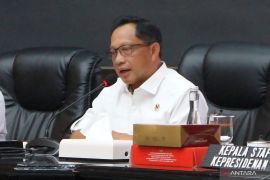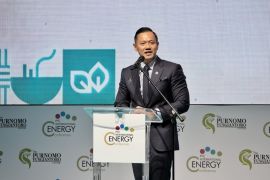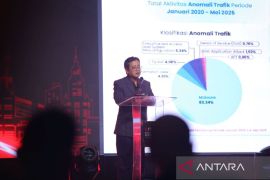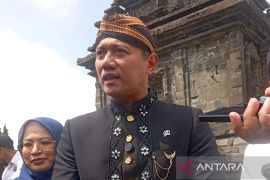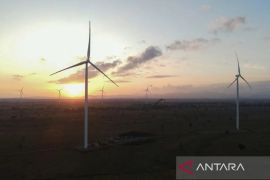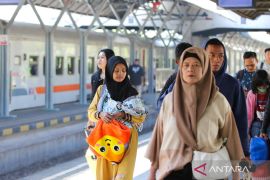Indonesia is entering the era of stiff competition, Jokowi said when commissioning a number of infrastructure projects in Maluku and Papua and West Papua with a ceremony held in Morotai on Tuesday afternoon.
Those who are slow would be certain to be left behind in the competition in the Asean Economic Community, not to mention competition in other regional groupings such as Chinese led bloc, the American led bloc, and the European led bloc, the president said.
"We cant afford to be slow and continue to be lagging behind," he said.
He said each area in the country would need and should have a port to facilitate economic development in the area.
He said this year 35 new ports and port expansions would be commissioned including one - the port of Wasior commissioned on Tuesday and five more on Wednesday.
"This is connectivity . This will unite us," he said.
In a bid to boost economic development, the president has ordered to prepare draft regulations , accelerate development of infrastructure with competitive quality.
Jokowi also asked the people to be skilled not only in building but also in maintenance.
"The problem with us is that we are skilled in building but always failed in maintenance," he said when commissioning hybrid solar power plants and micro hydro electric plants.
He said electricity is important not only for illumination but also for education, economy, health even for area security defense.
Meanwhile, Energy and Mineral Resources Minister (ESDM) Sudirman Said said the projects commissioned on Tuesday were part of energy infrastructure projects built in 2015 with total capacity of 10.7 megawatts in 17 locations.
In 2016, the ESDM ministry will build power plants using renewable energy in 131 locations with a total capacity of 31 MW, Sudirman said.
The government has a target to build new power plants with a total; capacity of 35,000 MW and power plants using renewable energy would account for 25 percent or 8,800 of the total capacity.
"The solution would be renewable energy. The projects would be financed with funds not only from the state budget but also from state companies such as PLN, Pertamina and LEN, and private investors," he said.(*)
Editor: Heru Purwanto
Copyright © ANTARA 2016


